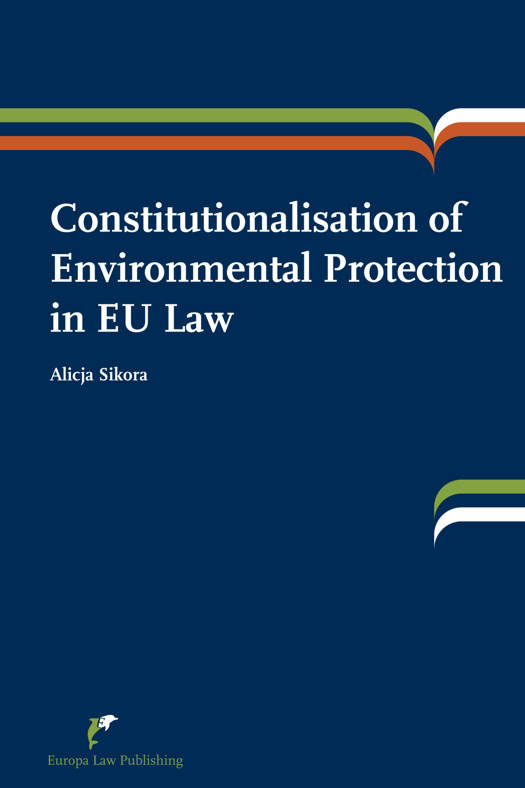
- Retrait en 2 heures
- Assortiment impressionnant
- Paiement sécurisé
- Toujours un magasin près de chez vous
- Retrait gratuit dans votre magasin Club
- 7.000.0000 titres dans notre catalogue
- Payer en toute sécurité
- Toujours un magasin près de chez vous
79,00 €
+ 158 points
Description
About the book: This book describes the unique process of legal evolution in the field of environmental law, which is denoted as constitutionalisation of the environmental protection in the EU legal order. This notion refers to the process of transformation of this particular area of law, which is reflected in its novel autonomous features and materialised through the normative and jurisprudential elevation of environmental objectives and principles. In the course of recent years, environmental protection has evolved from a sectoral policy to one of the core, transversal principles of the EU legal order. Grasped through the prism of the principles of integration and coherence, the environmental protection has become all-present and influential aspect of EU legislation, while at the same time reaching the status of a fundamental value underlying the constitutional dimension of the European Union as a community of law. The book examines this process on the basis of comparative legal analysis, the current practice of EU institutions, and the recent case-law of the Court of Justice of the EU.
About the author: Dr. Alicja Sikora is an EU law academic, lecturer and practitioner with more than 15 years of experience in EU litigation, as a Legal Secretary at the Court of Justice of the European Union and as a Legal Advisor to the Council of the European Union.
Graduate of Jagiellonian University and Université de Reims, Ph.D. in Law (Jagiellonian University, Cracow), Member of the Polish Bar (Cracow), Alicja Sikora currently acts as a Legal Advisor to the Council of the EU, and is a lecturer at the Faculty of Law of the Jagiellonian University. Her research interests focus on structural and constitutional aspects of EU law, as well as EU environmental law. She has published on variety of topics, including a monograph on the financial penalties under Article 260(2) and (3) TFEU (Kluwer Poland 2011).
About the author: Dr. Alicja Sikora is an EU law academic, lecturer and practitioner with more than 15 years of experience in EU litigation, as a Legal Secretary at the Court of Justice of the European Union and as a Legal Advisor to the Council of the European Union.
Graduate of Jagiellonian University and Université de Reims, Ph.D. in Law (Jagiellonian University, Cracow), Member of the Polish Bar (Cracow), Alicja Sikora currently acts as a Legal Advisor to the Council of the EU, and is a lecturer at the Faculty of Law of the Jagiellonian University. Her research interests focus on structural and constitutional aspects of EU law, as well as EU environmental law. She has published on variety of topics, including a monograph on the financial penalties under Article 260(2) and (3) TFEU (Kluwer Poland 2011).
Spécifications
Parties prenantes
- Auteur(s) :
- Editeur:
Contenu
- Nombre de pages :
- 300
- Langue:
- Anglais
Caractéristiques
- EAN:
- 9789089522061
- Date de parution :
- 17-04-19
- Format:
- Livre broché
- Dimensions :
- 160 mm x 240 mm
- Poids :
- 645 g

Seulement chez Librairie Club
+ 158 points sur votre carte client de Librairie Club
Les avis
Nous publions uniquement les avis qui respectent les conditions requises. Consultez nos conditions pour les avis.







